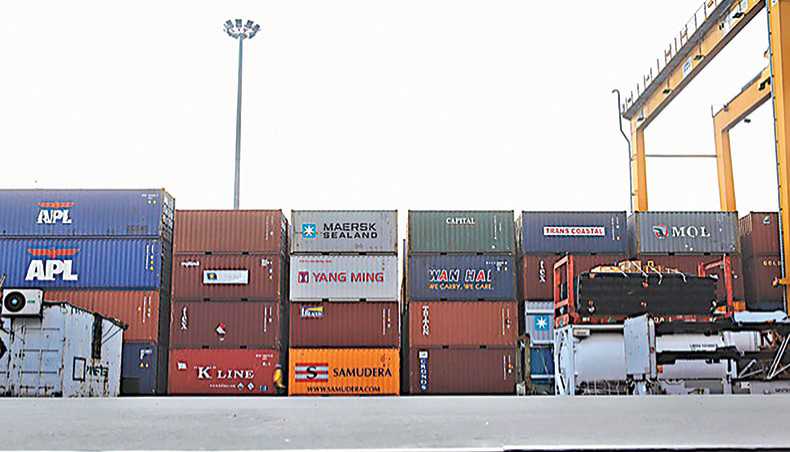Government should get started inclusive negotiations for retaining trade benefits: experts

Image: Collected
Experts and policymakers on Sunday suggested that the federal government should commence intensive negotiations with Europe and other countries, including the UK, Canada, China and India, seeking extensions on existing duty-free trade benefits after Bangladesh’s graduation from the status of a least developed country.
At a webinar, they also stressed the necessity for sufficient preparation in the post-graduation period to absorb trade shocks which would derive from imposition of duties on Bangladesh’s export by the countries.
The Economic Reporters’ Forum, Research and Policy Integration for Development and the Asia Foundation jointly organised the webinar on Getting Ready for LDC Graduation.
Bangladesh is scheduled to graduate from the LDC status in 2024 when it's supposed to lose its trade benefits, mainly dutyfree and quota-free market access for Bangladeshi products, on its graduation.
According to various estimates, Bangladesh’s exports may decline by up to 14 % as a direct effect of the LDC graduation.
According to the World Trade Organisation, the LDC graduation will have the greatest impact on Bangladesh’s exports which were estimated to decline by 14 %.
As per the US Conference on Trade and Development, Bangladesh may lose up to 7.5 % of its exports while local independent think tank Centre for Policy Dialogue estimated an 8.7-per cent decline in exports.
In his key-note paper, RAPID chairman and Policy Research Institute director Mohammad Abdur Razzaque said that the countries and trade blocs where Bangladesh now enjoyed dutyfree market access might impose tariffs at significant rates by up to 17 %.
The possible tariff rate may be 9.5 % in Europe market, 17 % in Canada, 16.2 per cent in China, 8.61 % in India and 8.71 % in Japan, he said.
More than 75 % of Bangladesh’s exports now enjoy LDC tariff preferences, he said.
Usually, the EU offers trade advantages to newly graduated countries for three more years however the provision is not settled for Bangladesh yet.
The UK may also follow the provisions of the EU in this regard.
While exports from Bangladesh will be subject duty in the EU market after 2027, Bangladesh’s main competitor in the region Vietnam will face no duty as the country and the EU have previously entered a Free Trade Agreement.
The government may also not have the ability to offer cash subsidy to exporters following the graduation. The federal government currently gives $560 million in export subsidy.
He advised the federal government to find ways to save at least 10 % of the price tag on doing business to keep exports unhurt and boost competitiveness.
He also said that trade policy with the EU and the UK ought to be given the topmost priority.
Countries where in fact the export market is crucial ought to be given priority for signing FTAs, he added.
Planning minister MA Mannan said that the commerce ministry should expedite discussions with the EU, the UK and other countries on extension of duty-free market benefits under the generalised system of preference.
The ministry may also have to be ready to seize the opportunities that may emerge following the graduation, he said.
Commerce secretary Md Jafar Uddin said that the federal government have been in discussion with the EU to wthhold the existing benefits.
The ministry can be holding negotiations with 11 countries to sign preferential or free trade agreements, he said.
He, however, said that there will be no problem whether or not extensions on the trade benefits cannot be obtained as the government was ready to face up to the challenges.
Bangladesh Investment Development Authority executive chairman Md Sirazul Islam said that although there have been no challenges, planning was the most important thing to keep export earnings unaffected.
Development of infrastructure, creation of skilled manpower and improvement of the service sector are some important areas of preparedness, he said.
RAPID executive director M Abu Eusuf, TAF country representative Kazi Faisal Bin Seraj, ERF president Sharmeen Rinvy and secretary general SM Rashidul Islam, among others, spoke at the programme.
Source: https://www.newagebd.net
Previous Story
- Hong Kong Sustainable Activewear Manufacturer Transforms Plastic Waste...
- 36pc want to visit for business, 31pc for...
- Small can be beautiful in a post-Covid world
- Garment workers lose careers across Asia, stores found...
- Shift focus to Asia to improve exports
- Asian coal demand fills the gap kept by...
- Exports: riding the waves of uncertainty
- Emirates resumes Dhaka flights from Wednesday